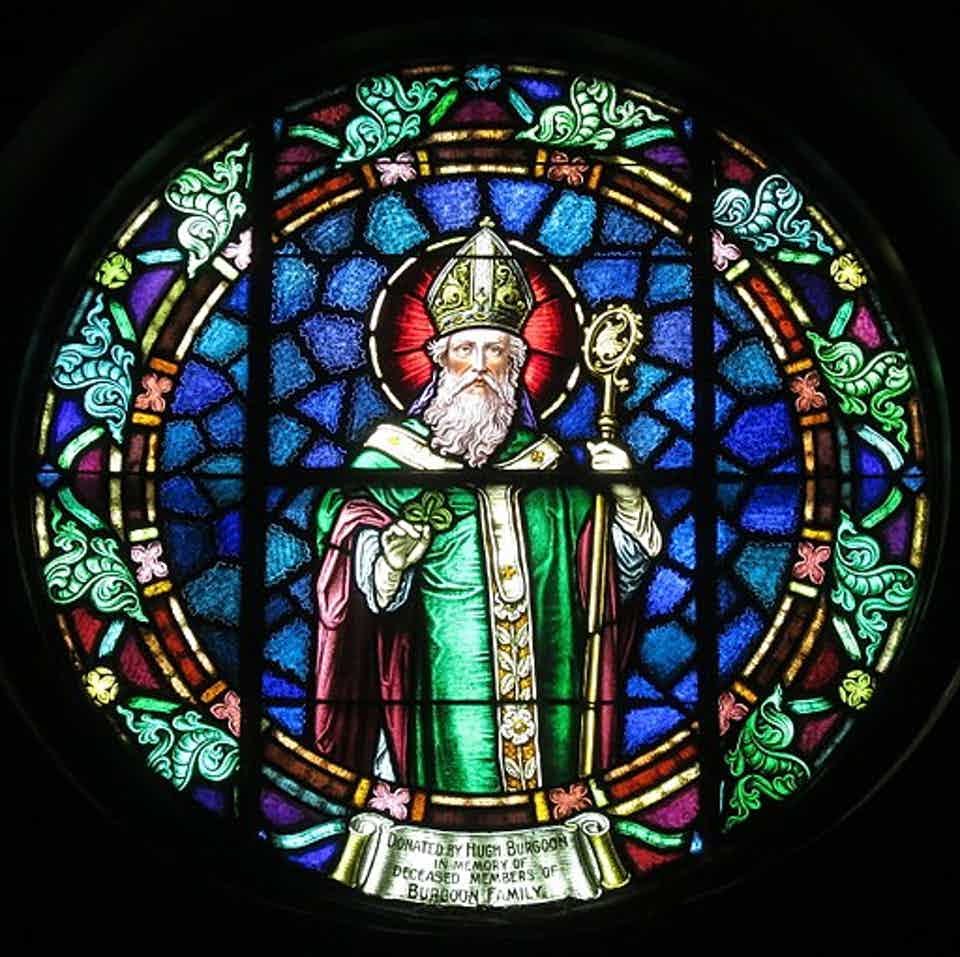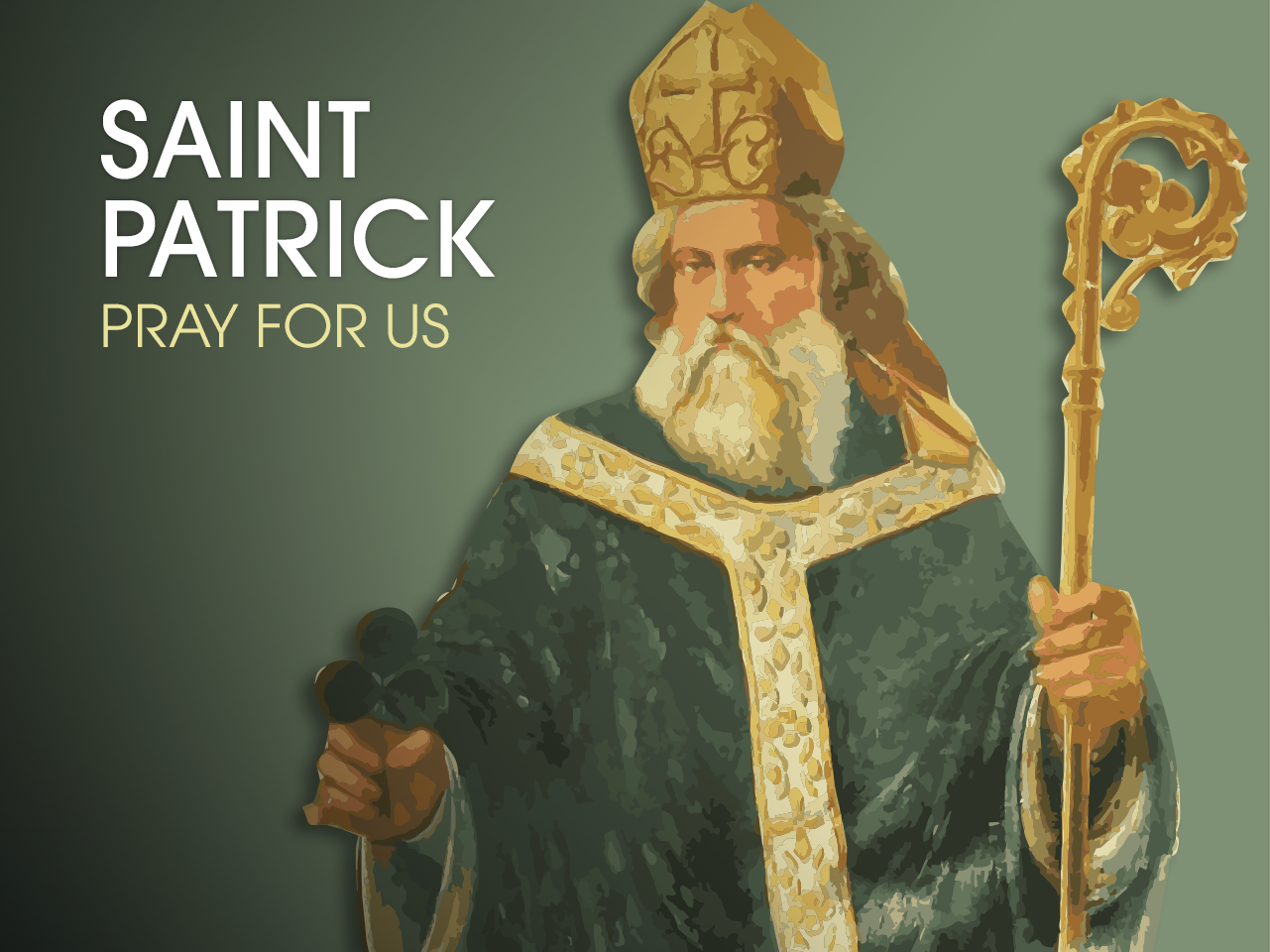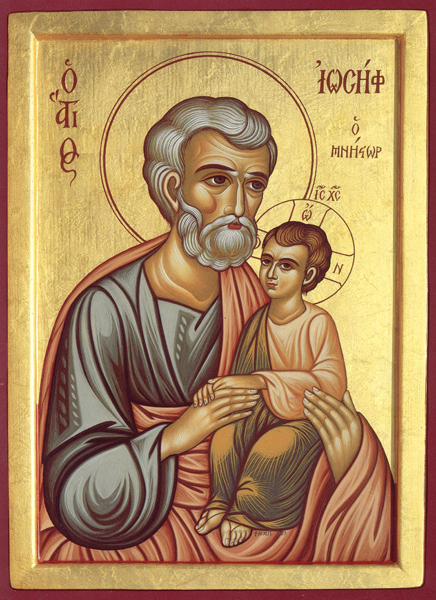
-St John of God carrying a sick person with the Archangel Raphael appearing to help him. Raphael (often misattributed by some commentators as Gabriel) stepping out of the darkness to assist him to bear his load. (Apart from his identification with caring for the sick, e.g., Tobit and his father, Raphael is often shown in gold. The name “Raphael” itself means “God has healed”) by Bartolomé Esteban Murillo (1617–1682), ca. 1672, oil on canvas, height: 79 cm (31.1 in), width: 62 cm (24.4 in), Hospital de la Caridad, Seville, Spain, please click on the image for greater detail
“Lord be blessed for in Your great kindness to me who am such a great sinner having done so many wicked things, yet You see fit to set me free from such a tremendous temptation and deception which I fell into through my own sinfulness. You have brought me into a safe harbor where I shall endeavor to serve You with all my strength. My Lord, I beg you with all my might, give me the strength of Your grace and always let me see Your clemency. I want to be your slave, so kindly show me what I should do. Give peace and quiet to my soul which greatly desires this. O most worthy Lord, may this creature of Yours serve and praise You. May I give my whole heart and mind to You.” ~Prayed by Saint John of God at the time of his final conversion
Saint John of God was born in the village of Montemor-o-Novo, Portugal to middle-class, faith-filled parents, the son of André Cidade and Teresa Duarte, a once-prominent family that was impoverished but had great religious faith. According to his early biographer, John was abducted from his home when he was only eight years old. According to his original biography, his mother died from grief soon after this and his father joined the Franciscan Order. John was taken to the town of Oropesa, Spain, more than 200 miles away. In Oropesa, John found himself homeless and alone. He met a good man named El Mayoral who gave him a job as a shepherd and a place to live. John worked hard until he was twenty-two years old, never returning to his parents’ home. El Mayoral wanted John to marry his daughter, but John wanted to see the world. He joined the army of the Holy Roman Emperor and battled the French. During his service, he was assigned to guard some captured clothing that went missing. John was accused of theft and condemned to death, but others intervened and he was released. Frustrated with military life, John returned to El Mayoral’s farm where he worked for another four years before entering the army once again to fight the Turks for the next eighteen years.
Upon the completion of his military service, John decided to return to his home country in Montemor-o-Novo to learn what became of his parents. After much searching, he found one of his elderly uncles who informed him that his mother died of heartbreak after his abduction and that his father joined the Franciscans and advanced in holiness. John said to his uncle, “I no longer wish to stay in this country; but rather to go in search of a way to serve Our Lord beyond my native place, just as my father did. He gave me a good example by doing that. I have been so wicked and sinful and since the Lord has given me life, it is fitting that I should use it to serve Him and do penance.”
John began an interior search for the best way he could serve God and decided to journey to Africa, to ransom himself to the Muslims in exchange for their prisoners. On the journey, he met a knight and his family who were destitute and unable to care for themselves. The knight begged for John’s help that John gladly gave by working and giving them his earnings. When one of John’s fellow workers fled to Muslim territory and converted to Islam, John began to despair, thinking he should have done more for his friend. After seeking counsel from a Franciscan monastery, he decided to return to the mainland of Spain for the good of his soul.
Upon his arrival, John threw himself into a life of prayer, made a general confession, and tearfully went from church to church begging God for the forgiveness of his sins. To support himself, he began to buy and sell religious pictures and books as a traveling salesman. He found this to be spiritually rewarding and fruitful for the salvation of souls. Eventually, at the age of forty-six, he set up a small shop of religious items at Granada’s city gate.
Soon after, the great preacher Saint John of Ávila came to town to preach a mission. John was in attendance and was so moved by John of Ávila’s sermons, and so keenly aware of his own sins, that he started running through the streets like a madman, shouting for mercy. He returned to his shop and destroyed every book that was not religious, gave every other religious book and picture away to those passing by, gave away the rest of his possessions, and continued crying out in the streets that he was a sinner. “Mercy! Mercy, Lord God, on this tremendous sinner who has so offended you!” Many thought John was a lunatic. Some good men brought him to Saint John of Ávila who heard his confession, counseled him, consoled him, and offered his continued guidance. But John was so deeply touched by the priest’s holy help that he wanted everyone in the town to know how sinful he was, so he ran through the streets crying out again and rolled in mud as a sign of his sinfulness. Eventually, two compassionate men took John to the local insane asylum for treatment.
The theory of the day was that those who were insane were best cured by locking them in a dungeon and torturing them continuously until they chose to abandon their insanity, and this is what happened to John. Saint John of Ávila heard of this and began communicating with John, encouraging him, and guiding him. He received every beating in the asylum with joy as penance and offered each sacrificially to God. Throughout, John exhorted the warden and other officers to treat the patients better. When John began to exude a peaceful disposition, the warden was pleased and permitted him to be freed of his shackles. John showed mercy and compassion to others, performing menial charitable tasks and spreading God’s love. He thought to himself, “May Jesus Christ eventually give me the grace to run a hospice where the abandoned poor and those suffering from mental disorders might have refuge and that I may be able to serve them as I wish.”

-logo/emblem of the Brothers Hospitallers of St John of God, the Fatebenefratelli, please click on the image for greater detail.
After receiving permission to leave the asylum, John made a pilgrimage and had a vision of the Blessed Mother who encouraged him to work for the poor and infirm. Upon his return to Granada, he moved forward with his desire to open a hospital. Through begging, he was able to rent a building, furnish it, and begin seeking out the sick. He worked tirelessly to care for them, begged for food, brought priests to hear their confessions, and nursed them back to health. In the years following, John extended his mission of mercy to the poor, the abandoned, widows, orphans, the unemployed, prostitutes, and all who suffered. Soon, others were so inspired by the work John was doing that they joined him. His example helped others: two men who were in public enmity with each other while sharing common dissolute lives, Antoni Martin and Pedro Velasco, were reconciled to each other and became the nucleus of the new order that John was establishing. His companions in the work made up what would eventually become the Order of Hospitallers. In John’s life, the group would be only an organized group of companions, but twenty-two years after John’s death, the pope would approve this group of men as a new religious order.
Among the many miracles that have been reported, the most notable was when John ran in and out of a burning hospital to rescue patients without being burned himself. He is most known for his reaction when a local hospital caught fire. Bystanders did nothing. Disregarding his own safety, John rushed into the burning building to carry out patients. After having done that, he began throwing pillows and blankets out of the windows, mindful of what it took to get supplies. Finally, it’s said that when the local authorities planned on shooting a cannon at the burning edifice to level it, John stood on the roof and, with an axe, separated the burning part of the building from that which had not yet ignited. He emerged unscathed. A subsequent biographer explained it thusly: “The flame of Divine love which burned in his heart surpassed the intensity of the material fire.”
When a local river was seen to be carrying driftwood, John and his companions went to gather it as useful supplies. When a boy fall into the river and was caught in its current, John leaped in to try and rescue the lad, but came down with pneumonia, the cause of his death. The same city that had earlier put him in a hospital asylum mourned his death. He was canonized in 1690. John of God died on March 8, 1550, his 55th birthday, in Granada.

-St. John of God saving the Sick from a Fire at the Royal Hospital in 1549 by Manuel Gómez-Moreno González (1880), oil on canvas, height: 310 cm (10.1 ft); width: 195 cm (76.7 in), Museo de Bellas Artes de Granada, Alhambra, Granada, Spain, please click on the image for greater detail

-attributed to Juan Zapaca Inga, 1684-1685, “Passing of Saint John of God”, oil on canvas, height: 1,660 mm (65.35 in); width: 2,225 mm (87.59 in), Lima Art Museum, Peru, please click on the image for greater detail
The Order of Brothers Hospitallers of St John of God maintains a presence in 53 countries, operating more than 300 hospitals, services, and centers serving a range of medical needs in addition to mental health and psychiatry. The Family of Saint John of God, as those who commit to his vision are called, is made up of more than 45,000 members, Brothers and Co-workers, and supported by tens of thousands of benefactors and friends who identify with and support the work of the Order for sick and needy people across the world.
Saint John of God is a shining example of God’s power. He was a sinner and was thought to be mentally ill, but God did incredible things through him. If you ever feel as though you have nothing to offer God, think of Saint John and know that the weaker you may feel, the more God can use you.
“Have charity, first for our own souls, then with the neighbor. For, as water quenches fire, so charity quenches sin.”
-St. John of God
Prayer
Saint John of God, you struggled in many ways throughout your life. Through it all, you never gave up your desire to serve God and others. Please pray for me, especially when I lose hope, that I may imitate your example and offer myself to God for His glory and the service of all. Saint John of God, pray for me. Jesus, I trust in You.
Love,
Matthew















_-_Annunciation_-_Google_Art_Project.jpg)
